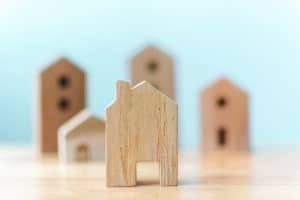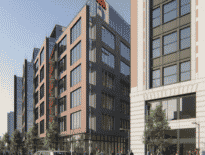The number of households missing rent and mortgage payments reached the lowest level in March since the start of the COVID-19 pandemic, according to a study from the Mortgage Bankers Association’s Research Institute for Housing America (RIHA).
RIHA’s most recent study, the fourth installment of “Housing-Related Financial Distress During the Pandemic,” found that 4.9 percent of mortgage borrowers, about 2.33 million homeowners, missed their mortgage payment in Marc. This is down slightly from December, when 5 percent of mortgage borrowers, or 2.38 million homeowners, missed their mortgage payment.
The study, which also looked at rental and student loan payments, found that 7.7 percent of renters representing 2.56 million households missed, delayed or made a reduced payment in March. The percent of student loan borrowers missing payments has remained steady at around 40 percent for the past year, RIHA said, with approximately 26 million borrowers, about 41 percent, missing student loan payments in March.
“The rapidly improving economy and labor market, increased vaccination rates, and promising trend of declining COVID-19 cases all bode well for those who are still facing unemployment or underemployment because of the pandemic,” Gary V. Engelhardt, professor of economics in the Maxwell School of Citizenship and Public Affairs at Syracuse University, said in a statement from the MBA. “However, millions of families are still facing economic distress, despite improving conditions since last March.”
RIHA’s research included data from the Understanding America Study, an internet panel survey of over 8,000 households that studied the pandemic’s impact. The study was authored by Engelhardt and Michael D. Eriksen, associate professor of real estate at the University of Cincinnati.
Mortgage borrowers were less likely than renters to miss payments, the study found. Over the past four quarters, 5.6 percent of borrowers missed one payment, 1.8 percent missed two payments, 1.4 percent missed three payments and 5.4 percent missed four or more payments.
About 16 percent of borrowers received permission from their lender in the first quarter to delay or reduce their monthly payment, RIHA said, down from 17.8 percent in the fourth quarter. Total missed mortgage payments were estimated at $13.2 billion for the first quarter compared to an estimated $14.2 billion in the fourth quarter.
During the past four quarters, 10.7 percent of renters missed one payment, while 4.4 percent missed two payments, 2.5 percent missed three payments and 6.1 percent missed four or more payments.
Landlords gave permission to 9.8 percent of renters in the first quarter to delay or reduce their monthly payment. Rental property owners lost as much as $7.85 billion in first quarter revenue from missed rent payments, according to RIHA, up from more than $7.4 billion in the fourth quarter.
Some homeowners and renters feel at risk of foreclosure or eviction, with approximately 1.2 million mortgage borrowers and 2.3 million renters saying they felt at risk of foreclosure, eviction or being forced to move in the next 30 days. These numbers remained unchanged from December.
Even mortgage borrowers who missed no payments during the past nine months were concerned about losing their home, with 2 percent of borrowers saying they felt at risk.
Edward Seiler, executive director of the Research Institute for Housing America and MBA’s associate vice president of housing economics, said most households should resume payments in the coming months.
“The expected acceleration in hiring and economic growth during the rest of the year should help most affected households resume their housing and student debt payments before expanded unemployment benefits expire at the end of September,” Seiler said.




 |
| 




